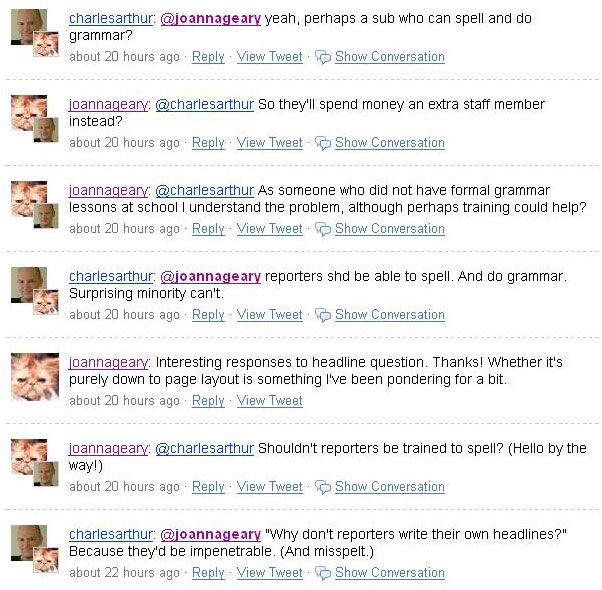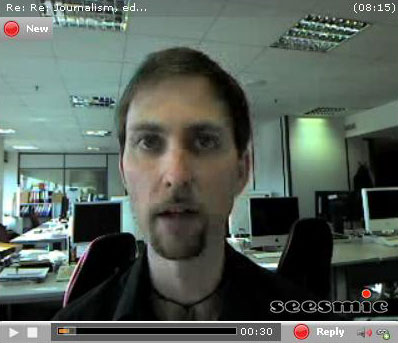I have a job interview on Monday.
It is at The Birmingham Post and the job title is “Development Editor”. It would be overseeing innovation and the development of new platforms for the newspaper.
I wasn’t going to say anything about it, as by telling the world I run the risk of potentially having that toe-curling moment when I have to tell everyone that I didn’t get the job.
But, when I saw the presentation I had to make, I thought it was worth sharing. I have already chatted about it to a few friends, so why not go the whole hog and put it up online?!
I have to outline a training course that would convert traditional print journalists into “fully-equipped and knowledgeable multi-media, multi-platform journalists” in just five days.
Not much then.
Despite my initial reaction being “it’s impossible”, trying to devise such a course is actually a great way to get the brain cells into gear. The last few months I have been immersing myself in all that is new and shiny on the web and, as a result, my way of thinking about the future of journalism has changed.
But do I have the ability to take a step back from that and assess where the industry is at the moment and what skills print journalists will need to have a share in that future? If I can, can I describe that transition in logical steps – as you would have to in a training course.
I hope the answer is yes.
What occurs to me is that the biggest battle is not the training in the use of tools such as Twitter, but the understanding of why you might want, or need, to use them.
It is a horrid thing when someone is told that the skills they have perfected over many years are no longer enough to survive in their industry and that the market and the competition has changed.
I guess the only way to acceptance is understanding, so my training course would start with at least a day investigating trends in the UK newspaper market and the rise in online competition. Perhaps a bit on insight into the best journalism on blogs too – which might open up the issue of the importance of conversation.
All too often the Internet comes across as the bad guy – the place where people read our stories for free and don’t have the decency to buy a paper. So, I think, there has to be a day dedicated to making sure journalists also know how much the web can benefit them in their jobs – that RSS Feeds, searches, alerts, etc. are all ways to make tracking down stories easier.
Then, and only then, would I get down to the business at looking at producing multi-platform content – experimenting with the best ways of communicating a particular message online.
It would be great to do a breaking news story exercise at the beginning and the end of the course to see if thinking had changed.
As you can see, I haven’t fully formed a training course yet but will be spending my weekend pondering! I’ll let you know how it goes…





